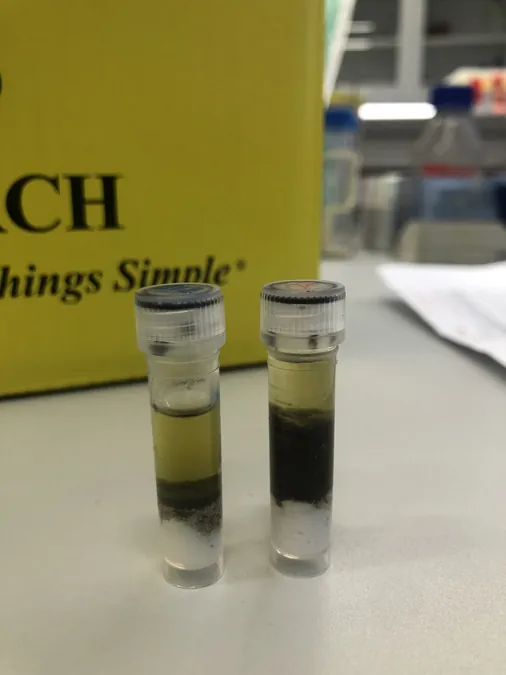
Historic Math Breakthrough by Teenage Prodigies, Evolutionary Insights from Overripe Fruit, and the Discovery of an Ancient Tadpole Fossil
2024-11-05
Author: Amelia
Teenage Mathematicians Stun the World with New Proof of the Pythagorean Theorem
In an astonishing feat, two high school students, Calcea Johnson and Ne'Kiya Jackson, have made waves in the mathematics community by proving the Pythagorean theorem using trigonometry. This theorem, established over 2,000 years ago by Greek philosopher Pythagoras, mathematically relates the lengths of the sides of a right triangle with the famous equation A^2 + B^2 = C^2.
In 2022, these prodigies earned recognition for their groundbreaking work, which has now been published in the prestigious journal American Mathematical Monthly. Their paper features five proofs and introduces a method for discovering even more, adding a fresh perspective to this age-old theorem. This accomplishment is noteworthy as previous attempts to utilize trigonometry for such proofs had only been successful by two mathematicians before them.
Now savvy college students, Calcea is pursuing environmental engineering at Louisiana State University, while Ne'Kiya is studying pharmacy at Xavier University. They remind us all to persist through challenges, as Ne'Kiya noted, "Finish what you start"—a sentiment every student can relate to.
The Impact of Overripe Fruit on Evolution and Human Alcohol Tolerance
Another intriguing story comes from the realm of evolutionary biology. Researchers are examining the "drunken monkey hypothesis," which suggests that our ancestors might have developed a penchant for alcohol due to the availability of fermented fruit in their diets. Historically, there has been debate among primatologists about how common the consumption of fermented fruits actually is. Recent findings indicate that many animals consume large quantities of fruit, leading to inevitable encounters with ethanol-rich, rotting fruit.
Matthew Carrigan, an author of a new review paper on this topic, posits that our primate ancestors may have adapted to consuming alcohol as a regular part of their diet, making it essential for their survival. This intriguing angle suggests that our relationship with alcohol might be rooted deeper in our evolutionary history than previously thought.
A 161-Million-Year-Old Tadpole Fossil Offers Surprising Insights
In a final piece of news, paleontologists have uncovered the 161-million-year-old fossil of a tadpole, which has provided significant insights into the evolutionary history of frogs. This exceptionally preserved specimen, hailing from the Jurassic period, is the oldest tadpole fossil discovered to date and boasts a preserved gill skeleton—a remarkable find given the typically fragile nature of tadpoles.
Mariana Chuliver, the lead researcher on this study, highlighted how the size of this ancient tadpole is nearly double that of contemporary counterparts. This discovery not only extends our understanding of the tadpole life cycle but also emphasizes that this stage of development dates back much further in history than previously recognized.
Together, these discoveries illuminate the interconnectedness of life on Earth, from the mathematical prowess of young scholars to the implications of fruit consumption, and the evolutionary journey of frogs. These breakthroughs show how science continues to expand our knowledge and appreciation of the natural world.
Stay tuned for more exciting revelations as science marches forward, challenging our understanding and inspiring new generations of thinkers!









 Brasil (PT)
Brasil (PT)
 Canada (EN)
Canada (EN)
 Chile (ES)
Chile (ES)
 España (ES)
España (ES)
 France (FR)
France (FR)
 Hong Kong (EN)
Hong Kong (EN)
 Italia (IT)
Italia (IT)
 日本 (JA)
日本 (JA)
 Magyarország (HU)
Magyarország (HU)
 Norge (NO)
Norge (NO)
 Polska (PL)
Polska (PL)
 Schweiz (DE)
Schweiz (DE)
 Singapore (EN)
Singapore (EN)
 Sverige (SV)
Sverige (SV)
 Suomi (FI)
Suomi (FI)
 Türkiye (TR)
Türkiye (TR)